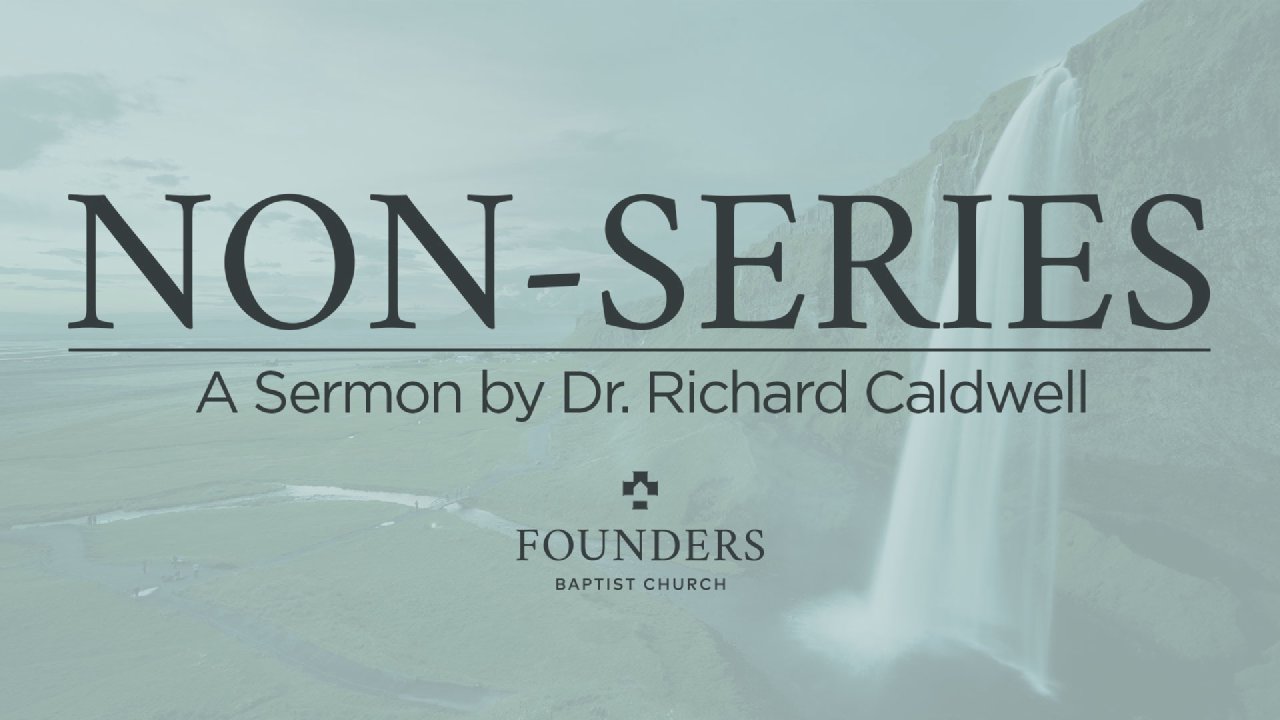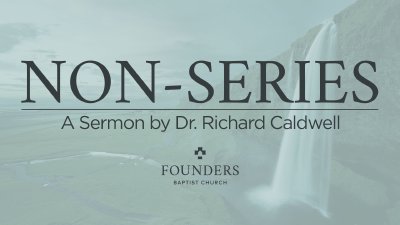Introduction:
We come this evening to three verses of Scripture that are not hard to understand but that make use of a Psalm in a way THAT IS hard to understand.
Paul makes a point about Jesus referring to Psalm 68:18.
Paul makes use of that verse in a way that doesn’t easily seem to fit its original context.
In fact, not only is he applying the Psalmist’s words to Christ (when in the original context they would refer to God, and THE OCCASION FOR THE PSALM would be either David’s triumph in Jerusalem over the Jebusites, or the transportation of the ark of the covenant to Jerusalem (2 Samuel 5-6)— the words have been changed.
ESV Psalm 68:18 You ascended on high, leading a host of captives in your train and receiving gifts among men
ESV Ephesians 4:8 Therefore it says, "When he ascended on high he led a host of captives, and he gave gifts to men."
How do we explain what Paul is doing?
Obviously, he does it under inspiration of the Holy Spirit. Even if we are not able to know exactly what is going on in Paul’s mind, the fruit of his mind is on display in Ephesians 4:8-10, and what he writes is the Word of God. What he writes is not that hard to understand.
But is there an explanation for what he is doing with this Old Testament verse?
Is this an example of ancient Jewish exegesis (midrash) that is found in rabbinical writings outside of Scripture?
Does this represent a use of Old Testament Scripture that is completely divorced from its original context?
Does Paul see this as Messianic prophecy so that he now sees Jesus as the fulfillment of the prophecy and fills the OT verse up with the NT fulfillment (pesher)?
Does Paul’s change of the verse reflect textual variants that perhaps existed in a textual tradition other than the Masoretic text or the Septuagint. A tradition reflected in some documents that DO have a giving of gifts in Psalm 68:18?
Peter O’Brien summarizes some of these views:
“A much more serious attempt to solve the dilemma takes its starting point from a variant form of the Old Testament textual tradition. The Syriac Peshitta rendering of Psalm 68:18 is ‘you have given gifts’, and although there is difference of scholarly opinion as to its value as evidence, it may reflect a textual tradition different from that represented by the MT and the LXX. Furthermore, the paraphrase of Psalm 68:18 in the Aramaic Targum is remarkable, for like the Peshitta it reads ‘you gave’ rather than ‘you received’ (as in the MT). It is unlikely that the New Testament wording of the passage has influenced the Targum, and although the Targum on the Psalms is late, it reflects a tradition and text form that are much earlier.68 M. Wilcox has cautiously concluded that the author of Ephesians ‘was here quoting either from, or in the light of, an Old Testament textual tradition resembling that of the Targum, but disagreeing with the tradition preserved in the LXX and MT at this point’.
Accordingly, it has been claimed that Paul has taken over the textual tradition as reflected in the Targum (‘you gave’), and employed a common technique of early Jewish hermeneutics, known as midrash pesher, in which his exposition of the text in the light of its fulfilment in Christ is integrated into the actual quotation”[1]
Or is there a way to understand Psalm 68:18 that fits with a historical-grammatical approach to interpretation?
Charles Smith believed that Psalm 68 is an example of intertextuality, and that the Psalmist was echoing something from Numbers 8 and 18 when God took the Levites from among the people of Israel and gave them as gifts to the people for service in the tabernacle.
ESV Numbers 8:6 "Take the Levites from among the people of Israel and cleanse them.
ESV Numbers 8:18 and I have taken the Levites instead of all the firstborn among the people of Israel.
ESV Numbers 18:6 And behold, I have taken your brothers the Levites from among the people of Israel. They are a gift to you, given to the LORD, to do the service of the tent of meeting.
O’Brien — “Smith claims that Psalm 68 is itself referring to earlier Scripture; it ‘echoes’ the language of Numbers 8 and 18, where the Levites are mentioned as being taken by the Lord from among the people of Israel (8:6, 14) since they belong to him in a special way (‘the Levites shall be mine’, v. 14; cf. 3:45). But having taken them for himself, he then gives them back as gifts to the people so as to serve the congregation. Thus, Numbers 18:6, ‘I have taken your brothers the Levites from among the people of Israel; to you they are given as a gift for the Lord, to do the service of the tabernacle of the congregation’. If Psalm 68 is read in this light, then the captives taken in Yahweh’s train as he enters his sanctuary are not his foes, but ministers whom he has taken and then given to his people to serve them on his behalf (cf. Isa. 66:20–21).
… According to Smith, ‘Paul wants his readers to understand that throughout history God has chosen special men as leaders of the community of believers’. The grace given to fulfil these different responsibilities may vary (cf. v. 7). The apostle’s exegesis of Psalm 68, then, is not that of midrash pesher, ‘but a remoulding of the thought of Psalm 68:18 on the basis of the Scriptural commentary in Numbers 8:6–19; 18:6 which the Psalmist used.… [T]he controlling factor [is that] of a grammatical-historical understanding of the text’.”[2]
WHAT MAKES THE WHOLE SITUATION EVEN MORE DIFFICULT (as Smith’s position indicates) IS THAT THE CONTEXT FOR PSALM 68 ISN’T ENTIRELY CLEAR.
[1] Peter Thomas O’Brien, The Letter to the Ephesians, The Pillar New Testament Commentary (Grand Rapids, MI: W.B. Eerdmans Publishing Co., 1999), 290.
[2] Peter Thomas O’Brien, The Letter to the Ephesians, The Pillar New Testament Commentary (Grand Rapids, MI: W.B. Eerdmans Publishing Co., 1999), 292–293.





